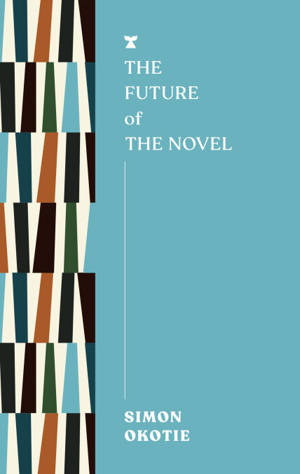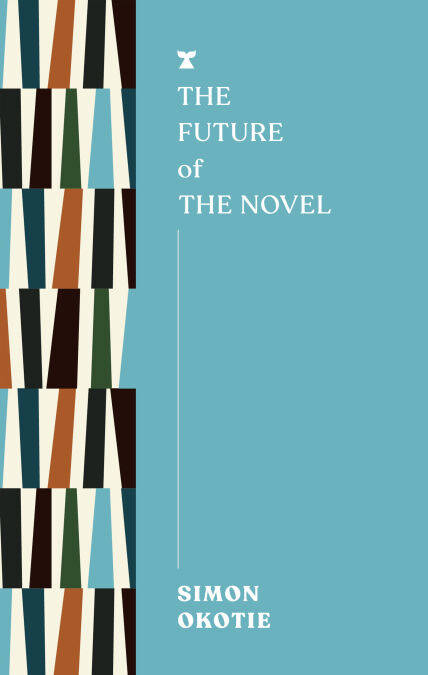
Bedankt voor het vertrouwen het afgelopen jaar! Om jou te bedanken bieden we GRATIS verzending (in België) aan op alles gedurende de hele maand januari.
- Afhalen na 1 uur in een winkel met voorraad
- In januari gratis thuislevering in België
- Ruim aanbod met 7 miljoen producten
Bedankt voor het vertrouwen het afgelopen jaar! Om jou te bedanken bieden we GRATIS verzending (in België) aan op alles gedurende de hele maand januari.
- Afhalen na 1 uur in een winkel met voorraad
- In januari gratis thuislevering in België
- Ruim aanbod met 7 miljoen producten
Zoeken
€ 9,85
+ 9 punten
Uitvoering
Omschrijving
Author and essayist Simon Okotie interprets the signposts – evident through the history of the novel – that point to the form’s future.
We’re used to the novel being declared dead, dying, or endangered. Seemingly every few years, a critic will read it the last rites – yet the form remains more popular than ever with readers. In The Future of the Novel, author Simon Okotie presents a bold future for long-form fiction, and suggests its evolution is far from over.
Okotie begins by responding to and critiquing John Carruthers’ book Scheherezade, or The Future of the English Novel, published in 1927 as part of the ‘To-day and To-morrow’ series – the inspiration for our present-day FUTURES. He then cites others who have since meditated on the direction of the form: Henry James, D. H. Lawrence, William Burroughs, Anaïs Nin, Zadie Smith, and China Miéville, among others. In doing so, he also tells the story of the novel itself, from the realism of the 18th and 19th centuries, through the early stirrings of modernism with its focus on the ‘inner life’, right through to the abstraction and experimentation of 21st century postmodernism, and beyond.
All of which informs Okotie’s own future vision for the novel – one that extends even further into the reaches of the subconscious, and speculates on the uneasy role artifical intelligence will play in the coming decades.
The Future of The Novel is a rich and immersive portrait of an artform which, despite constant claims to the contrary, is more alive and exciting than ever.
We’re used to the novel being declared dead, dying, or endangered. Seemingly every few years, a critic will read it the last rites – yet the form remains more popular than ever with readers. In The Future of the Novel, author Simon Okotie presents a bold future for long-form fiction, and suggests its evolution is far from over.
Okotie begins by responding to and critiquing John Carruthers’ book Scheherezade, or The Future of the English Novel, published in 1927 as part of the ‘To-day and To-morrow’ series – the inspiration for our present-day FUTURES. He then cites others who have since meditated on the direction of the form: Henry James, D. H. Lawrence, William Burroughs, Anaïs Nin, Zadie Smith, and China Miéville, among others. In doing so, he also tells the story of the novel itself, from the realism of the 18th and 19th centuries, through the early stirrings of modernism with its focus on the ‘inner life’, right through to the abstraction and experimentation of 21st century postmodernism, and beyond.
All of which informs Okotie’s own future vision for the novel – one that extends even further into the reaches of the subconscious, and speculates on the uneasy role artifical intelligence will play in the coming decades.
The Future of The Novel is a rich and immersive portrait of an artform which, despite constant claims to the contrary, is more alive and exciting than ever.
Specificaties
Betrokkenen
- Auteur(s):
- Uitgeverij:
Inhoud
- Aantal bladzijden:
- 128
- Taal:
- Engels
- Reeks:
Eigenschappen
- Productcode (EAN):
- 9781685891626
- Verschijningsdatum:
- 3/03/2025
- Uitvoering:
- E-book
- Beveiligd met:
- Adobe DRM
- Formaat:
- ePub

Alleen bij Standaard Boekhandel
+ 9 punten op je klantenkaart van Standaard Boekhandel
Beoordelingen
We publiceren alleen reviews die voldoen aan de voorwaarden voor reviews. Bekijk onze voorwaarden voor reviews.









